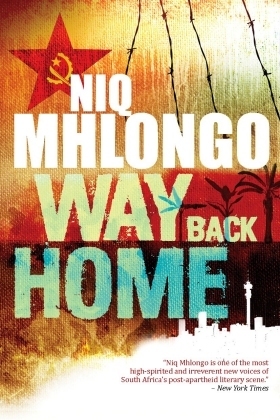The only two grown-up books I've managed to make it through of late have been 'classics'. Both are considered seminal works but given a choice between Gatsby and Coetzee, I hate to say it but I have to go with JM 'We Australians' Coetzee.
The Great Gatsby by
F Scott Fitzgerald
Verdict: Forgettable
Confession: I only read the book because I wanted to see how the movie compared. I otherwise had no intention of reading it. Turns out, I wouldn't have missed much.
This novel is meant to be about the opulence and hedonism of New York's Jazz Age - a time when booze, women and money were every ambitious man's favourite vices and a self-made man could really attain that American Dream. Jay Gatsby is one such self-made man - he is actually more self-invented than made - and his mansion on West Egg becomes the epicentre of cool for a certain set of rich, famous and fabulous people. The only cool kid he really wants to impress though is the selfish and childish Daisy, his one-time love now married to the also selfish and childish Tom. Where Daisy might be forgiven for her flaws because her silly heart sort of seems in the right place (or at least where she has been raised to think is the right place), Tom is a dick with basically no redeeming qualities. One can't even understand why Jay has invested so much of his life chasing after Daisy given that a) she really doesn't have very much going for her besides a pretty face and b) she married someone else.
It's about greed, obsession and a Shakespearean-worthy valting ambition. The story is told by Jay's only real friend and neighbour Nick Carraway, about the only character in this book who I gave a damn about. And that was only because he seemed as perplexed and disconnected from the Tom/Daisy/Jay/Wilsons love-hexagon as I felt. Gatsby is delusional, Daisy is a coward and the parties don't even sound that fun.
Go home Fitzgerald, you're drunk.
 Waiting for the Barbarians
Waiting for the Barbarians by
JM Coetzee
Verdict: Incredible
I'm not the biggest JMC fan. Yes, I loved Disgrace, but virtually everything else I've read from him since has been very average. However, I also recognise that he probably did much of his best work before I was born so I sought out this 1980 classic thinking it would be a good way to see if my literary relationship with JMC is going anywhere. Spolier alert: it isn't.
I certainly did not enjoy reading
Waiting for the Barbarians. This allegory tells the story of the unnamed Magistrate of a frontier town. The Empire has sent a brutal interrogation/torture expert to the colonial town and with the arrival of this cruel Colonel Joll, all the joy in the Magistrate's quiet, pleasant life expires. The indigenous people of the land (the barbarians) are sporadically captured, tortured and humiliated by the colonel and his men. Once the colonel leaves to report back to the Empire, the Magistrate begins a complicated and a-little-bit-creepy relationship with a barbarian girl who was left disfigured and blind by the colonel's interrogations. It is this relationship, and all the inconvenient questioning that the Magistrate starts doing about the Empire, about humanity, about human decency, that lead him into the very prison cell he has helped the Empire throw so many barbarians into. And when the torture, his humiliation and pain is over, the soldiers of the Empire retreat back to some imaginary capital fearing an invasion by the natives and the Magistrate is unceremoniously reinstated to his former position of power. The remaining townspeople are left waiting for the barbarians to invade, to kill them or simply to appear at all. And the waiting has no end.
JMC borrowed the title from the poem "Waiting for the Barbarians" by Constantine P. Cavafy. The last few lines of that poem totally encapsulate the unsettling feeling that crept out of the last pages of the book, when the Empire and its citizens have prepared themselves for an attack that has not come and probably will not come and the winter is coming:
"Why this sudden bewilderment, this confusion?
(How serious people's faces have become.)
Why are the streets and squares emptying so rapidly,
everyone going home lost in thought?
Because night has fallen and the barbarians haven't come.
And some of our men who have just returned from the border say
there are no barbarians any longer.
Now what's going to happen to us without barbarians?
Those people were a kind of solution."
And those people - my people, really - were a kind of solution in South Africa. For the new ruling elite, we probably still are.
There's no sentimentality or glossing over of what JMC is saying about colonialism, humanity, racism, the Apartheid government or any imperialist government at all, in this simple but striking novella. It's very hard to imagine that any of that rage and indignation could have been quelled, even with 33 years to manage it. I appreciated the stark and brutal honesty but, like I said, I certainly did not enjoy reading it. It's too brutal and too honest, I suppose, and that's why it haunted me for days after I read it. I admit that it's a fearless and thrilling work but it is also dark and twisty. I don't mind a book that makes me think but this was unpleasant and difficult to get through. Perhaps I understand the pre-Youth, pre-Slow Man, pre-Disgrace JMC better now but the writer I saw a glimpse of here frightened me. It was an incredible book but - never again.











